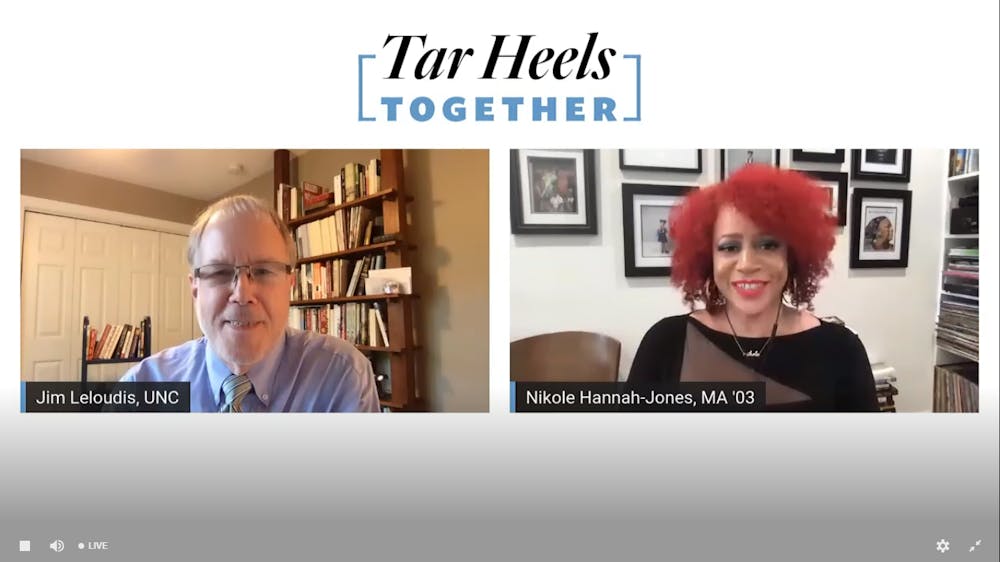Pulitzer Prize-winning journalist Nikole Hannah-Jones spoke with UNC professor Jim Leloudis about her career, creating The 1619 Project and the current movement for racial justice in a webinar on Wednesday.
During the webinar, Hannah-Jones, a 2003 graduate of the Hussman School of Journalism and Media's master's program, described founding The 1619 Project, an ongoing effort to reexamine the history and legacy of slavery in the United States.
“We are really trying to draw the connections to modern America, to say that if you look across so many of our institutions today, you can trace them back to slavery,” Hannah-Jones said.
She highlighted the role of Black people in shaping democracy, particularly in the current social justice movement.
“The people protesting in the streets right now are protesting the right not to be killed by agents of the state without consequence,” Hannah-Jones said. “And that is what you would hope you would see in a free democracy.”
The 1619 Project works to reframe American history by putting Black Americans at its center, but some critics of the project have said it fails to address the complexity of slavery because the institution also existed in other countries.
In response, Hannah-Jones stated that the United States was founded on inalienable rights.
“None of those other countries were founded on that ideal and yet engaging in chattel slavery at the same time,” she said. “And it’s that founding paradox that is so foundational to the tensions in America.”
Caroline Sink, a 2020 UNC graduate who attended the webinar, said a takeaway from Hannah-Jones’ discussion was the need for further education about slavery in the United States.



